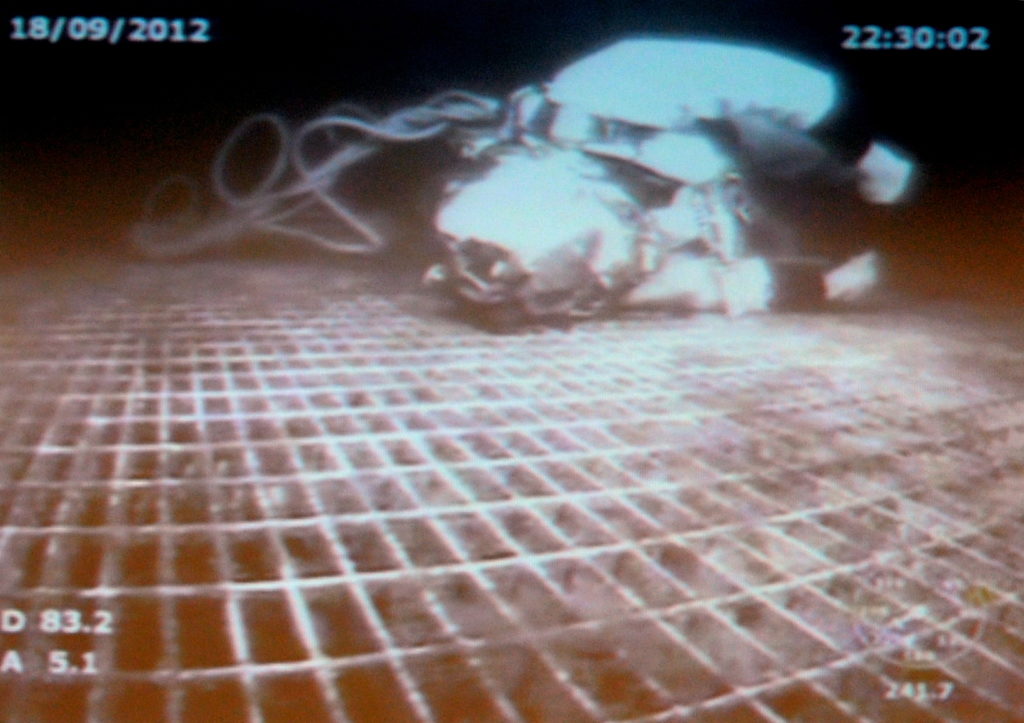
“I was on board the Topaz looking at the starboard bow on the very minute it happened, ten years ago,” explained famed diver Chris Lemons.
‘It’, is one most remarkable stories of survival to have taken place during the course of the North Sea oil and gas industry’s 50 year history.
In September 2012, Chris was diving beneath the Bibby Topaz when the vessel’s dynamic positioning computer failed, causing it to drift in high winds and rough seas.
Chris’ umbilical, his lifeline to the diving bell below the ship, became tangled in the Huntington Manifold, around 127 miles off the coast of Aberdeen.
As the Topaz drifted, the line, which supplies heat, oxygen and communications to divers, became ever more taught, it eventually snapped, leaving him 300 feet below the surface of the sea, with just five minutes back-up oxygen and little chance of rescue.
“I got to spend the 10 year anniversary looking at the scene of the crime,” joked Chris, who still works in the diving industry.
“I don’t particularly reflect on the accident; it has just become part of my life. I still work in the same place, and I go back to where everything happened on a regular basis.”
A miracle at the foot of the North Sea
It took 40 minutes for the team on the Topaz to regain control of the vessel, return to location and pull Chris from the icy depths of the North Sea.
At this point, fellow divers Dave Yuasa and Duncan Allcock fully expected their colleague to have died.
But despite being without oxygen for over half an hour, Chris escaped alive, unharmed and suffered no long-term effects.
How he survived remains something of a mystery, with the main theory being that Chris’ body was so saturated with oxygen, owing to the special gas divers breathe, that it was able to sustain him.
A decade has now passed since the death-defying incident, documented in the hit Netflix film ‘Last Breath’.
Since then Chris has carved out a side career as a public speaker, sharing his experience of flirting with death.
While he’s keen to stress that he’s no hero, rather someone that got lucky, it has put a upbeat spin on an otherwise alarming accident.
A ‘weirdly positive’ experience
Chris said: “In a weird way it’s had a very positive impact on my life – it’s strange. It really doesn’t feel like a decade has passed; that day has been a constant presence in my life ever since really – it still seems like yesterday.
“There’s not a day goes by where I’m not reminded about it or involved with it in some way, though not in a bad way especially. I don’t really reflect on it a great deal, it has just become part of my life.
“I’m obviously older and a bit wiser now with kids; I think at the time I was maybe a bit naïve as to the scale of what happened. But as I said, in a weird way, 10 years on, it’s become something of a positive experience in my life.
“I wouldn’t wish it upon anybody but it has opened a lot of doors and created opportunities to go around the world and talk to people.
“Also, because we extricated ourselves from what was this seemingly impossible position, it gave the three of us directly involved in the water more confidence in what we’re doing.”
A return to diving
For many a brush with death at the bottom of the sea would have been enough to put them off diving for life, but for Chris, it had quite the opposite effect.
Just three weeks later, he returned to the North Sea and to the Topaz; since then things have “very much continued as normal”.
“People always assume you’ve been traumatised, but actually it has been quite the reverse,” said Chris.
After carrying on as a diver for around nine years after the accident, he stopped last year to start supervising – for those than have seen Last Breath, the role carried out by Craig Frederick.
Talk scheduled in Aberdeen
Between working on the Topaz and spending time with his family on the West Coast of Scotland, Chris talks about the events of ‘Last Breath’ in front of audiences across the world.
His travels have taken him to Australia, Malaysia, Canada and France, with a stop in Aberdeen penciled in for next month.
The Society of Petroleum Engineers (SPE) Aberdeen Young Professionals section is holding ‘Last Breath – Reasoning with Life and Death at the Bottom of the North Sea’ in the Granite City on November 2.
The venue, Union Kirk, is less than a mile from Aberdeen Harbour, where Chris departed on the Topaz, now owned by Boskalis, back in 2012.
He said: “I hope it’s an engaging night. It is not my day job, but I find every time I do it people are interested to hear what I have say.
“It is a really good story more than anything, and I try not jazz it up too much. As well as the physical reasons why I survived, I talk about the procedural reasons, on our boat and in the industry more generally.
“We should be proud of the way we go about things in diving and oil and gas, and how that played a big part in bringing someone home to their family.”

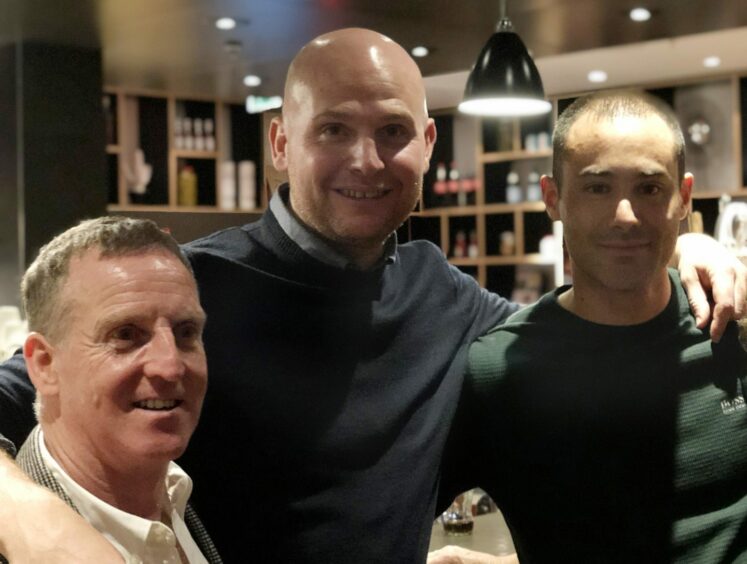 © Supplied by Chris Lemons
© Supplied by Chris Lemons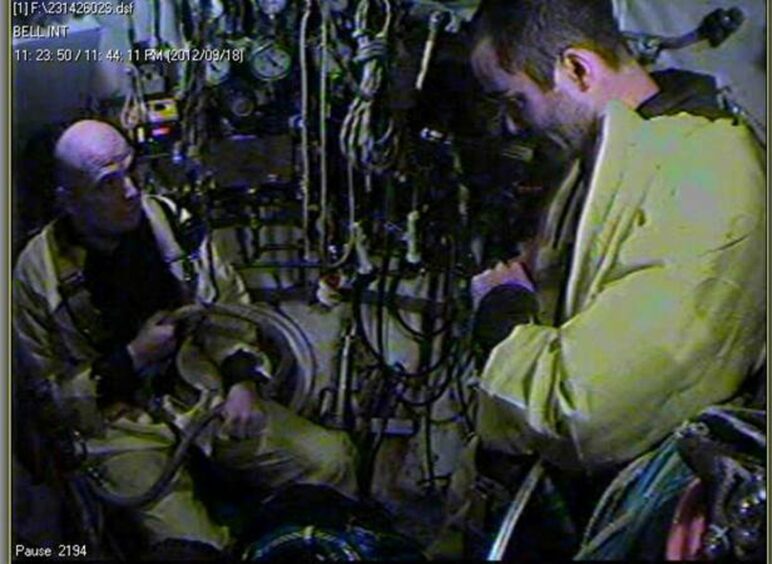 © Supplied by Bibby
© Supplied by Bibby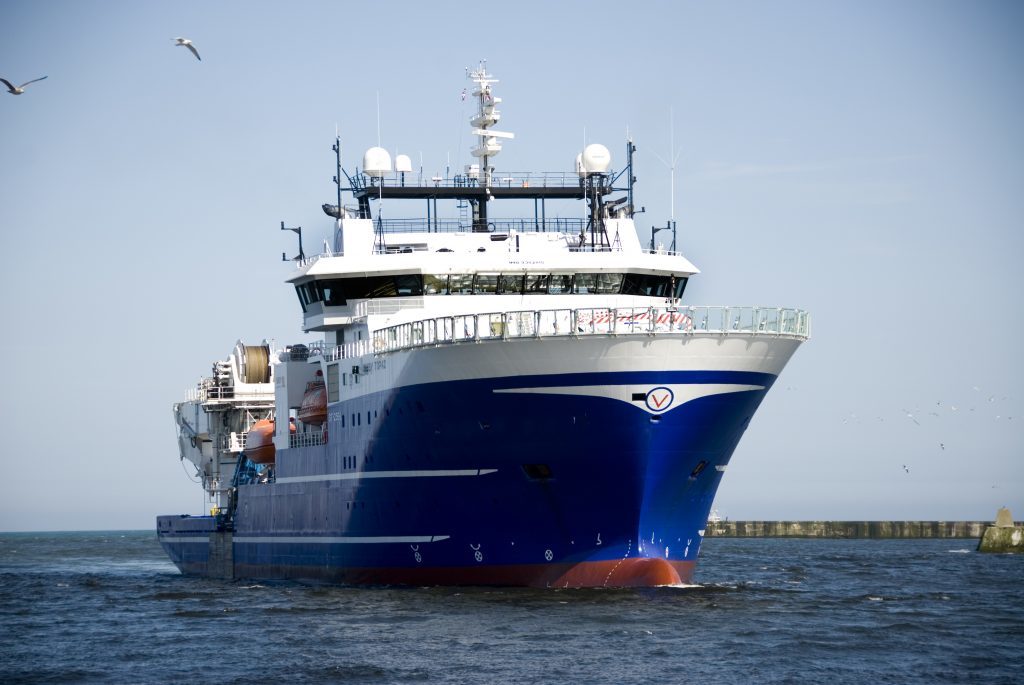
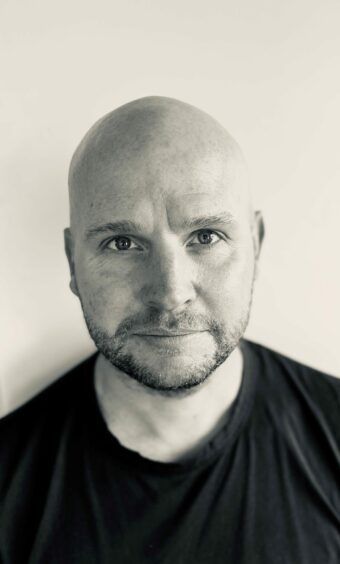 © Supplied by thinkPR
© Supplied by thinkPR